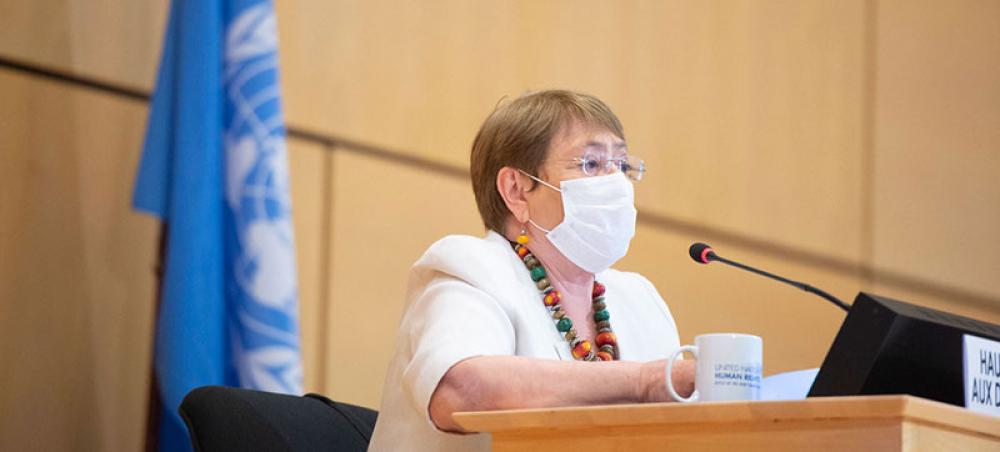Just Earth News | @justearthnews | 02 Nov 2021

Image: UN Photo/Violaine Martin
New York: The UN High Commissioner for Human Rights said on Monday that the impact of the COVID-19 crisis, and the changing world of work, makes the right to social security for all, “a matter of the utmost urgency.”
Michelle Bachelet was participating in the first ever intersessional panel discussion on the right to social security hosted by the Human Rights Council.
The goal was to identify challenges and best practices, through debate among Member States, UN agencies, treaty bodies, and civil society, among others.
For Mrs. Bachelet, there could not be a better time to discuss social security and social protection. Due to the pandemic, 255 million jobs have been lost in 2020 alone.
“Gaps in coverage of social protection systems, and inadequate social protection benefits, contributed to the inequalities that accelerated and deepened the impacts of COVID-19”, the High Commissioner said.
Good examples
Social security facilitates access to healthcare, protects people against poverty, and ensures essential economic and social rights, including food, water, housing, health and education.
The High Commissioner believes Member States “clearly recognised” the importance of social safety nets last year, when they responded to the pandemic with unprecedented protection measures to mitigate its social, economic and health impacts. 
At the peak of the crisis, from Malawi to Peru, the Philippines, Finland and the United States, Governments swiftly expanded their social assistance programmes.
They introduced new cash transfers to many people who are typically excluded, including informal workers, most of them women and freelancers, working in the growing app-based ‘gig economy’. 
In Argentina and Bolivia, for example, resources were used to advance more progressive taxation systems, creating wider fiscal space for social protection.
“But many of those measures were temporary”, Mrs. Bachelet cautioned. “And in every region, a lot more needs to be done to make the right to social security, a reality for all.”
Now, she argued, Member States should move from the temporary and ad hoc measures of the initial months of the pandemic, to longer-term policies.
Lack of coverage
According to the International Labour Organization (ILO) World Social Protection Report, more than half of the world’s population currently has no social protection coverage.
Only 26% of children globally receive social protection benefits and fewer than half of women with new-borns worldwide receive cash maternity support. Only around 30% of people with severe disabilities receive disability benefits.
The ongoing transition towards a green economy and the introduction of new technologies are also shifting the landscape of work, especially for those most disadvantaged.
“Social security is an essential toolkit to help workers navigate these changes, and builds invaluable resilience for the economy overall”, Mrs. Bachelet argued.
For the High Commissioner, not only is this type of protection “a fundamental human right”, but it is also “indispensable for the exercise of many other rights and necessary for a life in dignity.”
Work in progress
Renewing solidarity is a cornerstone of the Secretary-General’s Common Agenda, which aims to combat inequality and guide how the world can recover better from the pandemic.
For Mrs. Bachelet, in this context, international cooperation with less developed countries “is essential and will benefit all.”
The Office of UN High Commissioner for Human Rights (OHCHR) is working to advance social protection systems worldwide, the prioritisation of healthcare budgets, and broader participation by healthcare workers and communities in social protection schemes.
“Social protection systems are not a drain on resources: they are an invaluable investment in sound societies”, the High Commissioner concluded.